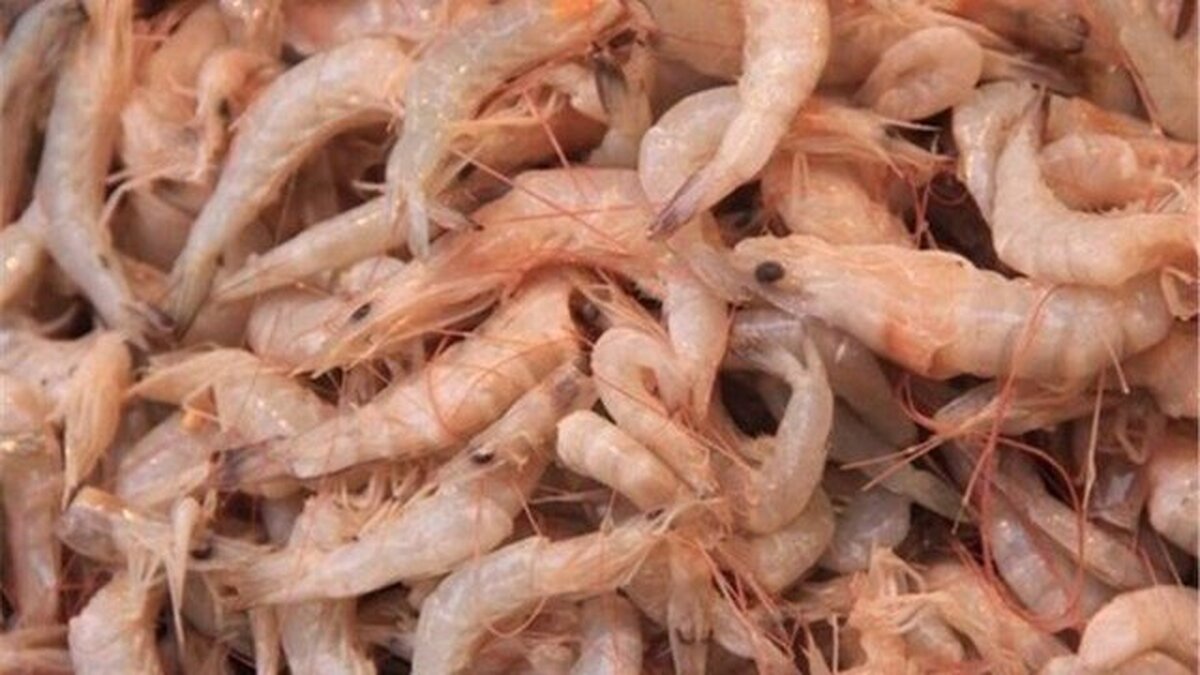
Bushehr Shrimp Production Exceeds 21K Tons
EghtesadOnline: A total of 21,767 tons of shrimps have been produced in Bushehr Province’s aquatic farms since the beginning of the current Iranian year (started March 21), which shows a 5.36% decrease compared with the similar period of last year.
This year’s harvest season for farmed shrimps has come to an end.
Soghra Ashraf, the deputy head of Bushehr Fisheries Bureau, said the rise in shrimp farming input prices is one of the reasons for this decline in production, in addition to the fact that the infrastructure slated to help increase production were not completed during the production season, IRNA reported.
The official added that 90% of the shrimps produced in the province are exported to China, Russia and the littoral states of Persian Gulf, Financial Tribune reported.
The southern province of Bushehr is Iran’s shrimp production hub, accounting for around 60% of the country’s output.
Around 23,200 tons of farmed shrimp were produced in Bushehr Province during the last Iranian year (March 2018-19).
According to Director General of Bushehr’s Fisheries Organization Abbas Ali Zendehboudi, Bushehr topped the list of Iranian provinces in farmed shrimp production.
The official was quoted as saying by IRNA that 90% of the output have been exported.
Apart from farmed shrimp, Bushehr produces eels, squid and cutlass fish, which are mainly exported to China, Vietnam, Thailand, the UAE, Oman, Russia and Malaysia.
China Bans Shrimp Imports from Saudi Arabia, Opts for Iran
China has temporarily banned imports of shrimp from Saudi Arabia. The ban has been followed by 40 shrimp exporters from Iran being granted market access, Undercurrent News reported in August.
The country imported 23,048 tons of shrimp from Saudi Arabia in the first six months of this year, according to Chinese customs.
The temporary ban was announced on Aug. 2 by China’s General Administration of Customs and applies to Saudi Arabia’s National Aquaculture Group.
NAQUA—Saudi Arabia's largest aquaculture company—was previously the only Saudi firm permitted to export to China.
Chinese industry publication Foodspath said Chinese customs bureaus detected white spot syndrome virus in a Saudi shipment of shrimp. Citing an industry source, it reported Chinese customs implemented the ban “to prevent the disease from entering China”.
For NAQUA, the temporary ban counts as a blow, especially with orders for Chinese New Year set to be made in the next few months.
It appears to have pinned its future on the country; China's preference for head-on, shell-on shrimp allows the firm to keep labor costs low and remain competitive.
China imported 19,033 tons of shrimp in January 2019 from Saudi Arabia but just 306 tons in June, according to Chinese figures, indicating NAQUA had geared toward supplying the market for the Chinese New Year.
The January surge in the first six months of 2019 showed Saudi Arabia was China's third-largest shrimp supplier, with imports from the country worth $145 million.
The temporary ban was shortly followed by market access being granted to Iranian shrimp exporters.
Iran exports 30,000 tons of shrimp annually to China, its largest market.
Among exporters granted permission to sell fisheries products to the country is shrimp processor, Daryazad Seafood Products.
According to its website, the firm is headquartered in Bushehr Province, a coastal region on the Persian Gulf, and produces raw processed and value-added shrimp products.
Iranian veterinary authorities said China approved the exporters after they complied with Chinese laws, regulations and standards. The updated Chinese list, including the firms, was published on Aug. 14.
In 2018, China imported no shrimp directly from Iran, official figures show.
Iran's exporters have relied on sending shrimp to China through Vietnam in the absence of official export approval. Exporting through Vietnam has become more challenging, however, due to a crackdown in transshipment by Chinese authorities.
With the transshipment route through Vietnam seemingly closed, the firm could face a challenge to find other markets if the ban is not lifted.


